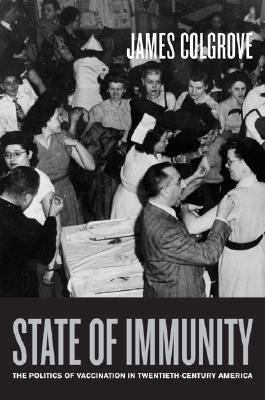A nice exploration of the cultural, social, legal, and political aspects affecting public acceptance of vaccination, and issues concerning compulsory vaccination.A rather glib summary might be "there's nothing new under the sun", in the sense that so many of the themes are recapitulated from the late 19th century through the early 21st-century.and this is largely descriptive. That is, there's not so much of a discussion of the ethical issues underlying these questions as there is a discussion of how those who played out in American society during the 20th century. As some have said, this is a little bit dry, clearly being an academic work. However, for those who are interested in improving vaccination acceptance, it's really worth reading, to understand and avoid repeating the mistakes of the past.

